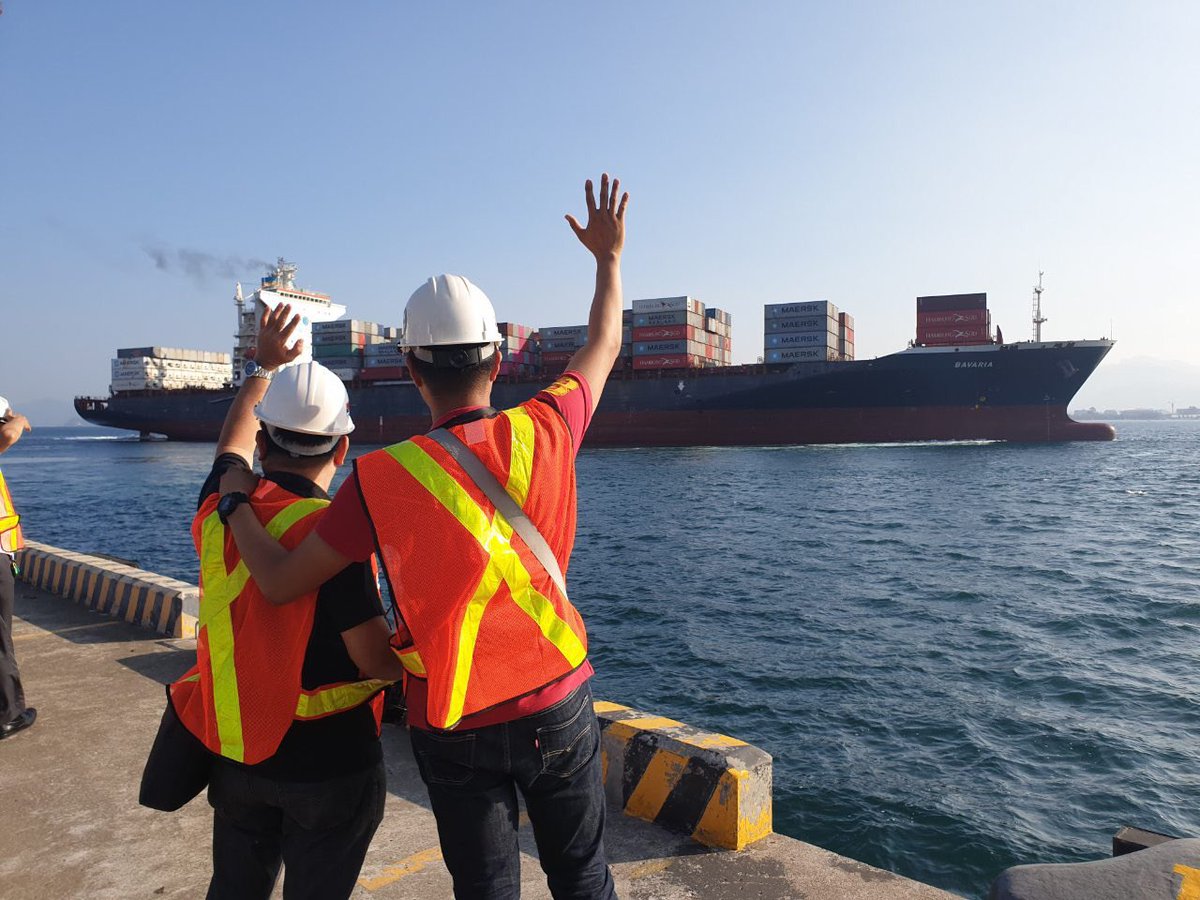
SUBIC, Philippines — The Philippines, one of two Southeast Asian countries that protested being treated like dumpsites by wealthier nations, on Friday shipped 69 containers of what its officials called illegally transported garbage back to Canada.
Administrator Wilma Eisma of Subic Bay freeport said the tons of garbage were loaded overnight on the container ship M/V Bavaria, which left on a 20-day journey to the Canadian port city of Vancouver and ended a “sordid chapter in our history.” The Bavaria will stop at a Taiwanese port before heading to Canada, she said.
Environmental activists, including those from Greenpeace and EcoWaste Coalition, welcomed the Bavaria’s arrival at Subic Bay, and on Thursday sailed on board a small outrigger with a streamer reading, “Philippines: not a garbage dumping ground!”
President Rodrigo Duterte had threatened to forcibly ship back the trash, which officials said was transported to the Philippines in 103 containers in 2013 to 2014, and falsely declared as recyclable plastic scraps. Several containers of the trash had been disposed of, including in a landfill, leaving 69 containers of electrical and household waste, including used diapers, rotting in two Philippine ports.
The Philippine government recalled its ambassador and consuls in Canada earlier this month over Ottawa’s failure to comply with a May 15 deadline to take back the waste.
“I think the message that we’re sending to the world is that we will not be a pushover and, moreover, that the president is really somebody to reckon with,” Eisma told The Associated Press.
The return of the garbage removes a six-year thorn in relations between the two countries, especially under Duterte, a temperamental leader who took office in mid-2016. He has resented international criticism, including by Canadian Prime Minister Justin Trudeau, of his bloody crackdown on illegal drugs that has left thousands of mostly poor suspects dead.
The countries had sought to resolve the problem for years, with Trudeau saying in 2017 that legal issues preventing the return of the garbage had been resolved.
The return, however, was delayed by other issues despite Canadian assurances of its willingness to take back the garbage that Trudeau said was shipped to Manila in a private commercial transaction.
Last week, Canadian Environment Minister Catherine McKenna said the government had awarded a contract to French shipping giant Bollore Logistics Canada, calling for the return of the containers by the end of June.
But presidential spokesman Salvador Panelo rejected the plan, saying the Duterte administration would look for a private shipping company to transport the garbage sooner.
“If Canada will not accept their trash, we will leave the same within its territorial waters,” Panelo said. “The president’s stance is as principled as it is uncompromising: The Philippines as an independent sovereign nation must not be treated as trash by other foreign nations.”
Malaysian Prime Minister Mahathir Mohamad has also criticized the practice of wealthier countries such as the United States, Canada and Japan sending their non-recyclable waste to poorer countries.
Speaking in Tokyo on Thursday, Mahathir said it was “grossly unfair” and should stop. His comments came a few days after his government announced plans to return thousands of tons of plastic waste to mostly Western countries.
China banned the import of plastic waste last year, causing other Southeast Asian nations to become new destinations.
Philippine environmental groups urged the Duterte administration on Thursday to ban all imports of waste and ratify the Basel Ban Amendment, which prohibits the import of waste for any reason, including recycling. They cited the discovery of other waste shipments to the Philippines from South Korea in 2018 and more recently from Australia and Hong Kong.
The garbage issue has been the latest strain in Philippine relations with Canada under Duterte. Last year, he cancelled a multimillion-dollar agreement to buy 16 helicopters from Canada after Trudeau’s government decided to review the deal due to concerns that the Philippine military might use the aircraft in counterinsurgency assaults.
———
Associated Press journalists Jim Gomez, Bullit Marquez and Basilio Sepe in Manila and Mari Yamaguchi in Tokyo contributed to this report.